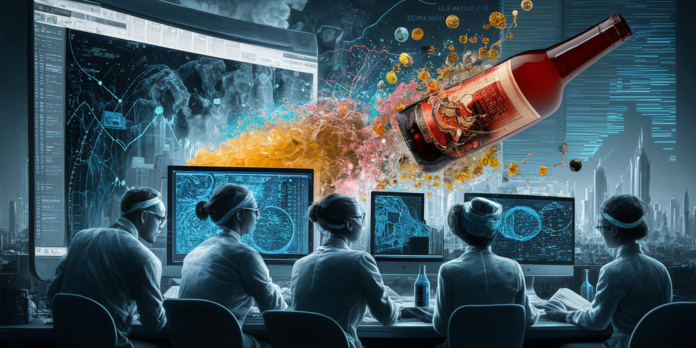Belgian studies think artificial intelligence improves taste, but brewers are still important. Belgian beers are well known for their diversity, excellence, and history, regardless of your preference for a spicy lambic or a sophisticated Trappist. According to researchers, they have now improved beers substantially by utilizing artificial intelligence.
Lead researcher Prof. Kevin Verstrepen of Leuven-based KU University claimed AI might assist in understanding the complicated connections that shape human scent sense.
Like many food items, beer has hundreds of distinct fragrance molecules detected by the tongue and smell and combined into a single image by the human brain. But because the substances interact, our perception of one is likewise influenced by the amount we have of the others, the individual speaking noted.
Verstrepen and colleagues analyze the chemical composition of 250 retail Belgian beers of 22 varieties, such as lagers, fruit, blonds, West Flanders ales, and non-alcoholic beers. Their findings are published in the scientific publication Nature Communications.
The features that were examined included the amount of alcohol present, the pH level, the concentration of sugar, and the amount and quality of over 200 distinct compounds that contribute to flavor, including terpenoids from hops and esters made by yeasts, which are both responsible for producing the taste of fruit.
Over three years, a 16-person taste panel evaluated all 250 beers based on 50 distinct criteria, including hop flavors, sugar content, and sharpness.
The researchers also gathered 180,000 reviews of various beers from the internet buyers’ review site RateBeer. They discovered that although their tasting panel’s ratings and comments about the brews’ other characteristics, such as sugar content, bitterness, amount of alcohol, and malt aroma, associated well with the panel’s ratings, the evaluation of the beers was influenced by factors like price.
 Verstrepen noted that slight variations in chemical concentrations can have a significant effect, particularly when several components are involved. He also mentioned that certain chemicals generally considered off-putting may be beneficial when present in smaller quantities or mixed with different aromatic substances.
Verstrepen noted that slight variations in chemical concentrations can have a significant effect, particularly when several components are involved. He also mentioned that certain chemicals generally considered off-putting may be beneficial when present in smaller quantities or mixed with different aromatic substances.
The researchers used various data sets to build machine learning models, a type of artificial intelligence, to forecast a beer’s flavor and level of admiration according to its ingredients.
They then utilized the data to improve a commercial beer already on the market by incorporating chemicals like glycerol and lactic acid, which the models indicated were critical indicators of ultimate enjoyment.
As a result of the adjustments, both alcohol and alcohol-free beers received higher scores from the reviewing panel for attributes like sugar content, physique, and comprehensive appreciation.
Verstrepen stated that although the models have drawbacks, such as they were only created with datasets derived from premium, commercial beers, their most excellent potential use may lie in improving non-alcoholic drinks.

However, Verstrepen notes that brewing expertise is still essential, so beer enthusiasts don’t have to worry that new technologies will ruin a great tradition.
The brewers are still responsible for optimizing a beer based on the formula and brewing techniques, even though AI models anticipate chemical modifications that might occur.




